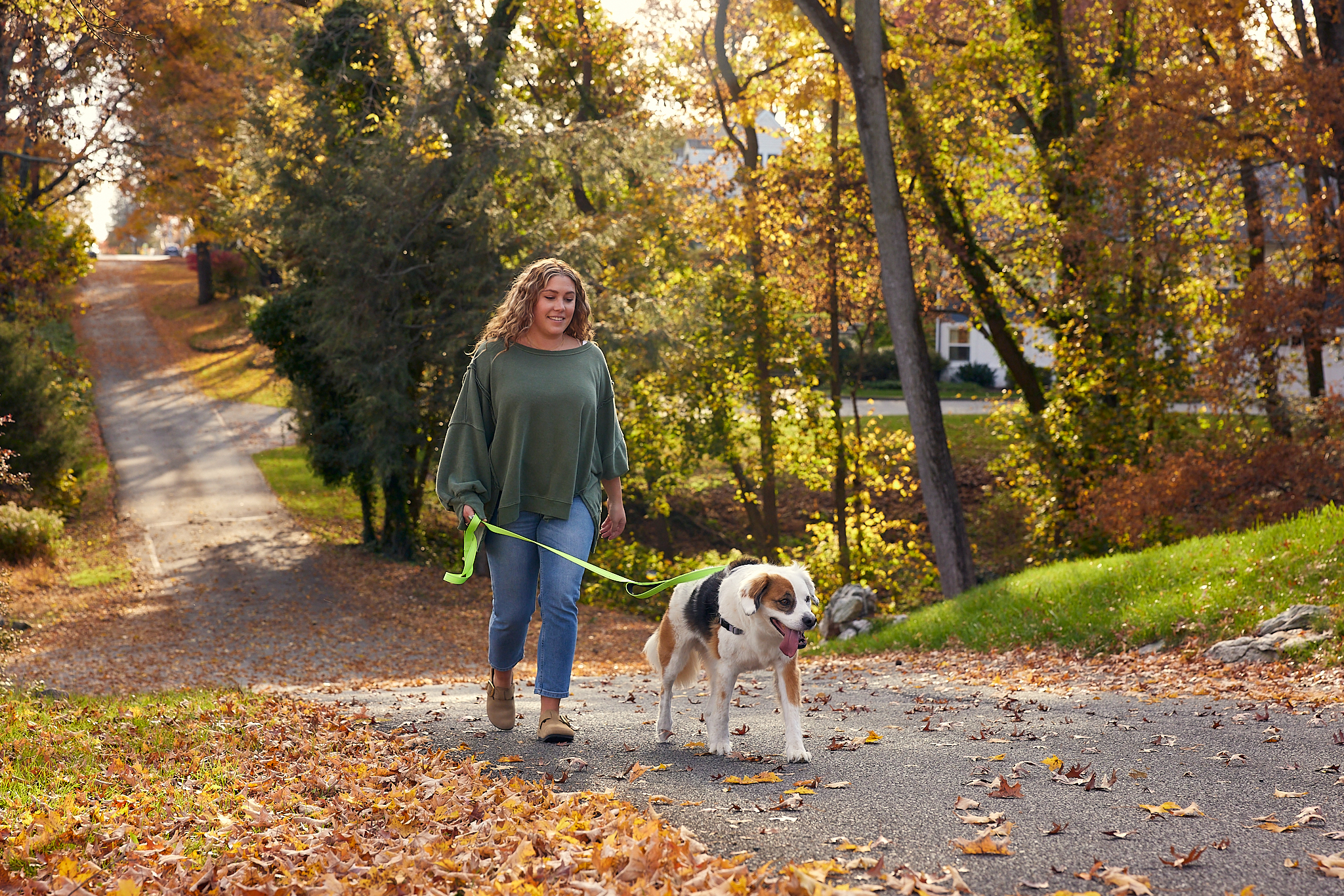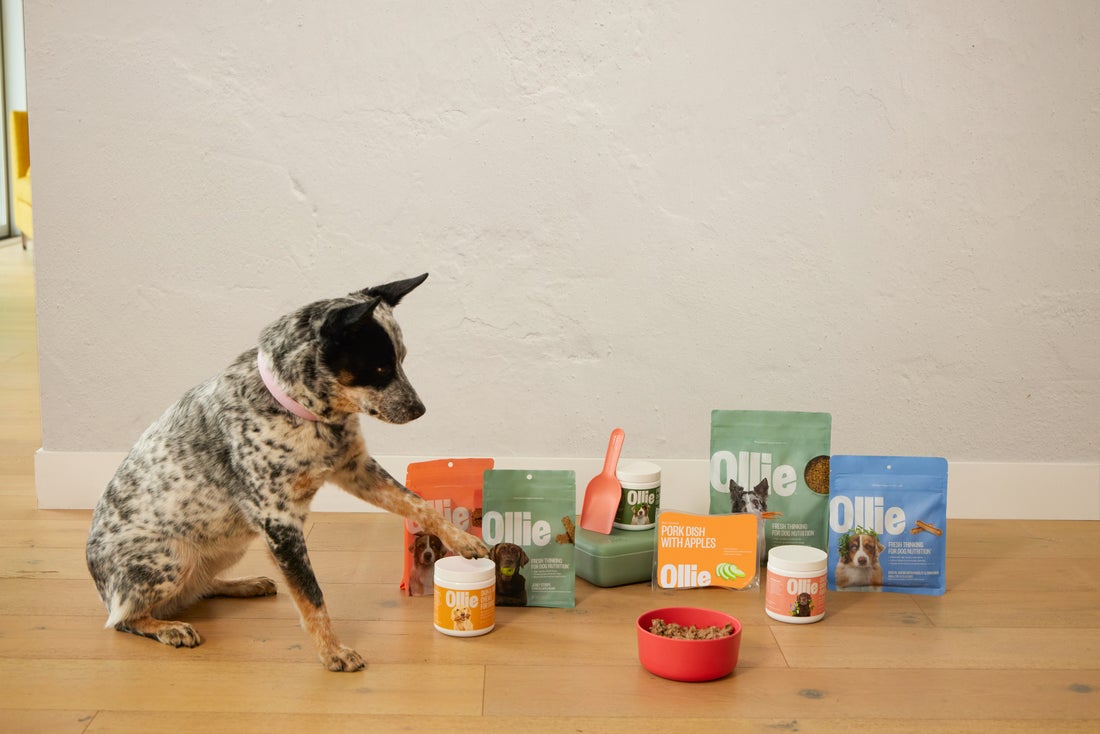Hey Ollie blog readers! We’re offering you an exclusive 60% OFF your starter box! Try now!
When it seems like your dog might be sad or anxious or excited—your instincts are probably correct. Just like their human companions, dogs are capable of a range of emotions and can be deeply affected by their environment and past experiences. Your dog’s mental health might be even more important than you think: Along with feeding them a healthy diet and getting them the right amount of exercise, keeping them mentally stimulated is one of the most important elements of their overall health.
As an owner, being able to identify what habits or tendencies result from certain emotions will make you more in tune with your dog’s needs. Read below to learn more about common dog mental health issues and how you can help them cope.
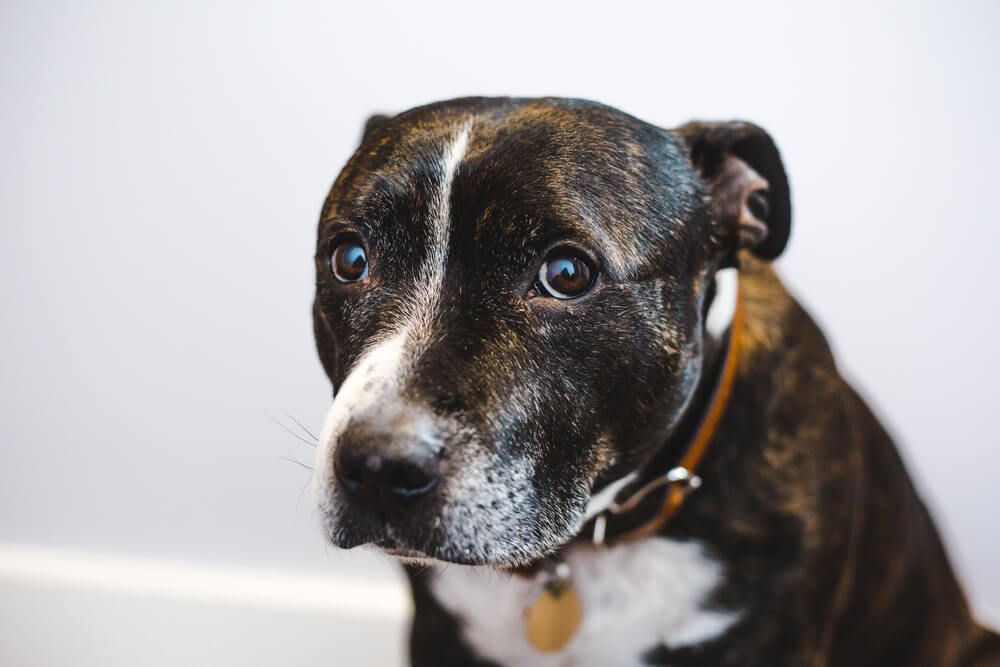
Anxiety
Dogs are creatures of habit and routine. If they have anxious tendencies, big changes in their environment—moving houses or bringing home another pet or a baby—can trigger anxiety. As dogs age, they can become particularly more set in their ways. “If they’re feeling anxious, it can manifest sometimes as reduced appetite, whining or vocalizing, pacing, or acting out by chewing or destroying things that they never would have before just to unleash the stress,” says Dr. Betsy Miller, DVM, MPH. Keep an eye out for anything you’d consider “bad dog” behaviors—peeing inappropriately or getting into the garbage are also signs of stress.
What you can do to help: Proper training can help your dog stay calm, and easing them into change is always better than a sudden shift in environment or lifestyle. Do your best to introduce changes as gradually as you can so they have time to adjust. If you are undergoing big life changes, try to pay them a bit more attention than you might normally.
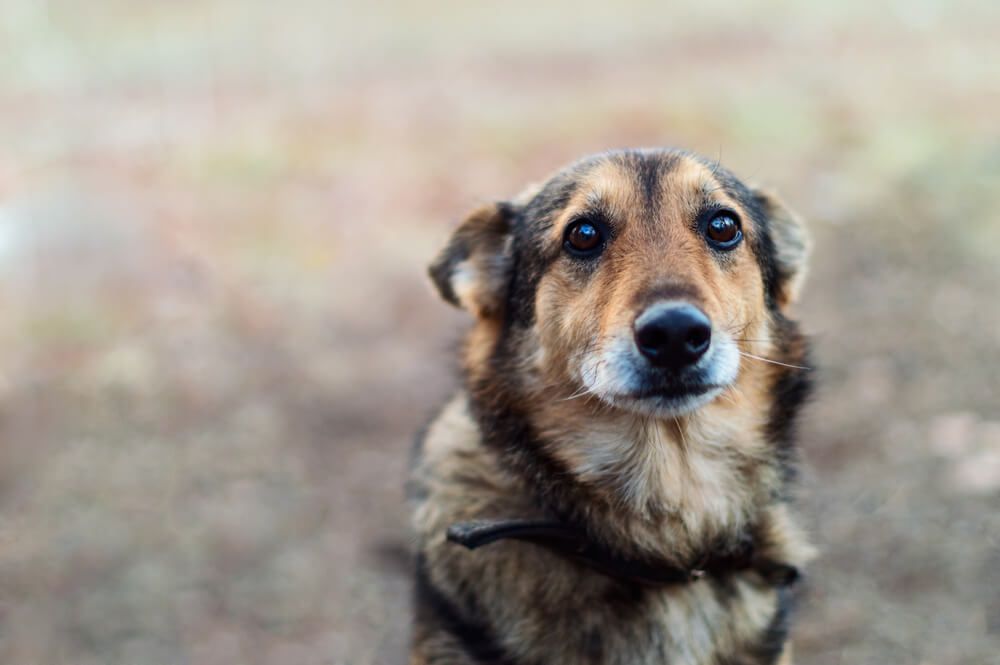
Grief or sadness
As pack animals, dogs grow very attached to both their human and pet roommates. Losing either of those companions can be very difficult for them. “I’ve definitely seen dogs mourn and grieve when they lose a housemate,” says Miller. “I think it can be a hard transition.” Don’t be surprised if your dog doesn’t eat as well, sleeps more, and generally seems disinterested in doing the things that they normally do after a loss.
What you can do to help: Approach it the same way you would with a person who just lost a friend or loved one. “Try to encourage them to go on walks and pay them a bit more attention at that time,” Miller advises. “Eventually, with time, it will get better.”

Boredom
That feeling of restlessness after being stuck inside all day? It’s not just humans that feel it, it’s dogs too—and it’s the biggest reason for destructive behavior. “If you keep your dog mentally stimulated, there will be fewer issues overall,” says Dr. Chris Hoppe, DVM. What falls under mental stimulation, he says, is more than just exercise and playing with your animal—you need to give them things to do to fuel their mental state. If you leave your dog alone in a crate, they’ll get bored with a bone or toy within an hour if they’re home all day. Hoppe suggests giving them a puzzle or activities to work on if you’re gone for multiple hours.
Granted certain lazy breeds, like English Bulldogs, don’t need the high level of stimulation that working dogs like Border Collies or German Shepherds do. For those active breeds, not getting them the exercise and stimulation they need can cause tremendous stress and lead to destructive behavior. In some cases, it can even cause skin problems as they become so bored that they start chewing on themselves.
What you can do to help: Commit to regular exercise and mental stimulation on a daily basis. If your dog has been alone all day, stimulate them with a game to play or some training soon after you get home. “If you grab some treats and work on teaching your dog to sit or going through a training session, you’re giving them something to
focus on and giving them a purpose and that’s a huge thing,” Hoppe says.
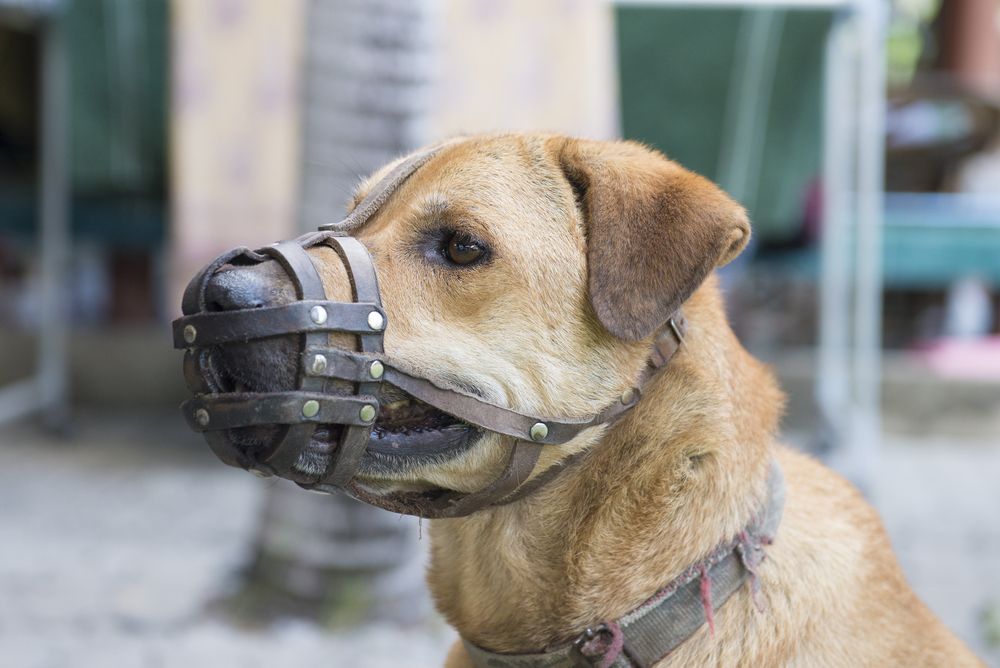
Aggression
If your dog acts scared or angry when seeing another dog, it’s likely because that situation triggers them or makes them feel anxious. If you adopted your dog and don’t know his full history, it’s possible that he may have had a past dog attack encounter and Post-Traumatic Stress Disorder could be at play. Both of those emotions can result in aggressive behavior and potentially lead to some type of confrontation or a dog fight.
What you can do to help: Pay close attention to when your dog is not enjoying a situation and remove him before it becomes aggressive. Never force your dog into a situation that has ended poorly in the past—it will reduce stress for both of you. Knowing the early signs of aggression or reactivity can help you act quickly before an interaction escalates.
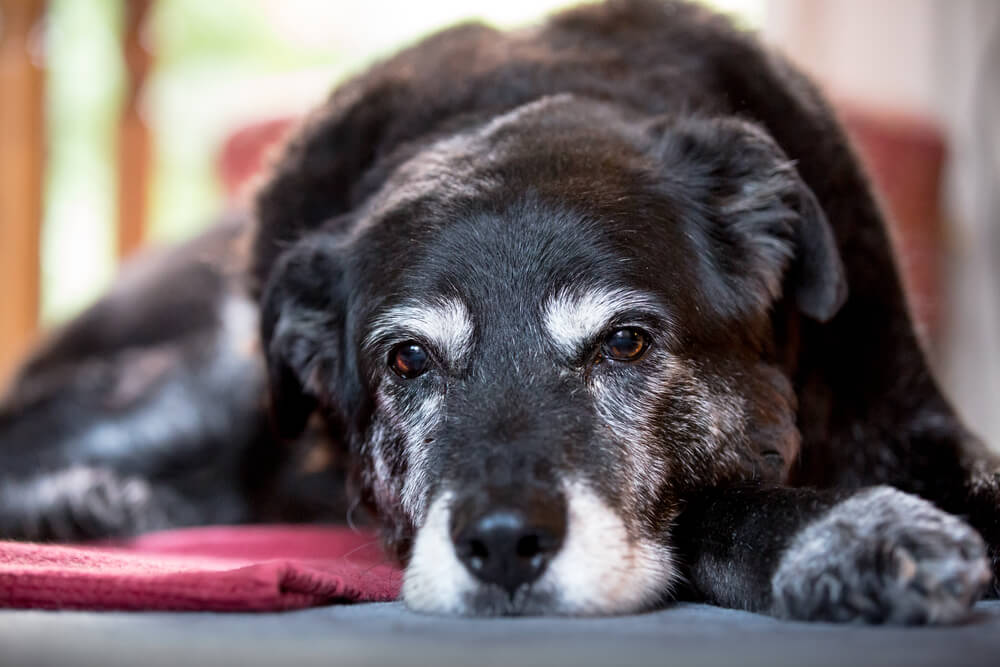
Cognitive decline
As dogs enter their later years, it’s possible for them to develop the canine version of dementia. “It’s hard to test and have a tangible diagnosis because we’re not talking to them, but it’s not uncommon for dogs to get more confused as they get older,” Miller says. “They’ll walk into a room and forget where they are or get stuck in a corner, or have trouble sleeping and wake up confused and start vocalizing.”
What you can do to help: Be patient with your pet as they get older and show signs of mental decline. Eliminate any surprises—-keep their food and bed in the same spot and don’t make any drastic changes to their routine or environment. Maintain a healthy diet throughout their entire lifespan, and consider supplements: “Omega-3s and fish oils are good for everything—brain health included—so I think that, along with a well-balanced diet, can help preserve brain health in addition to all the other vital organs,” Miller says.
To help mitigate any mental illness or emotional issues, a healthy diet will always be a huge factor. The fresh, real food ingredients in Ollie’s customized recipes are perfectly balanced to maintain your pup’s health—physically and mentally. “The whole life of the dog and all of the organ systems, the way the dog feels, it’s all associated with proper nutrition and being healthy,” Miller says. “A well-balanced, high-quality diet is the foundation of that. Those are the building blocks of every aspect of their health.”
The Ollie blog is devoted to helping pet parents lead healthier lives with their pups. If you want to learn more about our fresh, human-grade food, check out MyOllie.com.
Tagged As:

The nutrition your dog needs,
the food they want.

Enjoying our articles? Subscribe our Newsletters and get new articles directly to your inbox
You might also like
31 July 2025
4 MINS READ
The Healthiest US States for Dogs
The Ollie Health team, a team of veterinarians and veterinary technicians, reviews thousands of photos submitted through Ollie’s Health Screening service. That’s hundreds of dogs (and their st…
by Ollie Pets
30 July 2025
3 MINS READ
The Poop Scoop: Your Dog Digestion Questions Answered
As pup parents, we spend a lot of time handling dog poop, and as a key indicator of a dog’s health, it’s only fitting that we think and talk about it just as much. Unfortunately, what happens …
18 July 2025
6 MINS READ
Can You Mix Fresh Dog Food With Kibble?
If you’re feeding your dog kibble but want to upgrade their bowl, you’re not alone. Many pet parents ask if they can mix fresh dog food with kibble to get some of the benefits of fresh food wi…
by Ollie Pets





